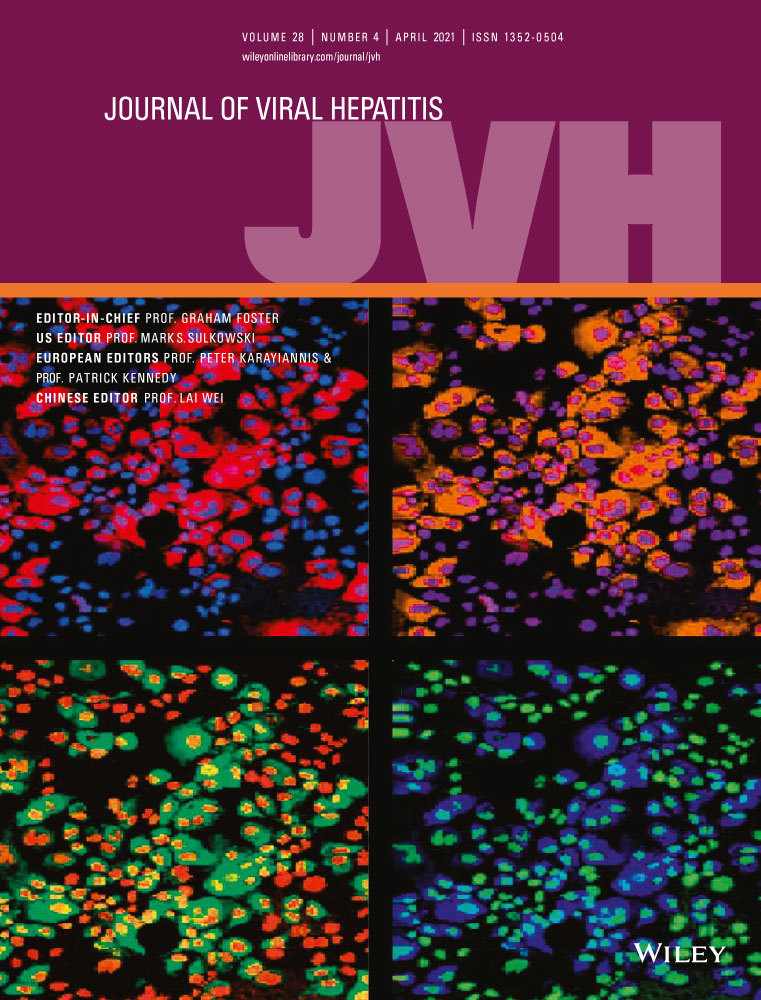Antiviral treatment for hepatitis C is associated with a reduced risk of atherosclerotic cardiovascular outcomes: A systematic review and meta-analysis
Xin Su and Xin Zhao contributed equally to this article.
FUNDING INFORMATION
This work was supported by the National Science Foundation Council of China (No. 81370291).
Abstract
Hepatitis C virus infection (HCV) may be associated with a greater risk of cardiovascular disease (CVD), and the evidence for whether antiviral therapy for HCV could reduce the risk of CVD events is inconsistent. The aim of this meta-analysis was to investigate the association between anti-HCV treatment and the risk of CVD. We searched PubMed, EMBASE and Cochrane Library databases from inception to 20 August 2020. The pooled hazard ratio (HR) with 95% confidence interval (CI) of the risk of CVD events [any CVD, coronary artery disease (CAD) and stroke] was calculated using the random-effects model. A total of eleven studies, including 309,470 subjects, were enrolled in this meta-analysis. Among those, four studies reported on any CVD between anti-HCV–treated and anti-HCV–untreated patients, five studies reported on CAD, and five studies reported on stroke. Also, five studies reported on any CVD between patients with sustained virological response (SVR) and without SVR. Overall, antiviral therapy for HCV was associated with a reduced risk of any CVD (HR = 0.64, 95% CI: 0.50–0.83), CAD (HR = 0.73, 95% CI: 0.55–0.96) and stroke (HR = 0.74, 95% CI: 0.64–0.86). Besides, we found that SVR was associated with a significant decrease in any CVD compared with non-SVR (HR = 0.74, 95% CI: 0.60–0.92). In conclusion, this meta-analysis demonstrated that antiviral therapy for HCV was associated with a reduced risk of CVD events. In addition, the risk of CVD events was lower in individuals with SVR compared with those without SVR.
CONFLICT OF INTEREST
The authors declare no conflicts of interest.
Open Research
DATA AVAILABILITY STATEMENT
The data that support the findings of this study are available from the corresponding author upon reasonable request.




